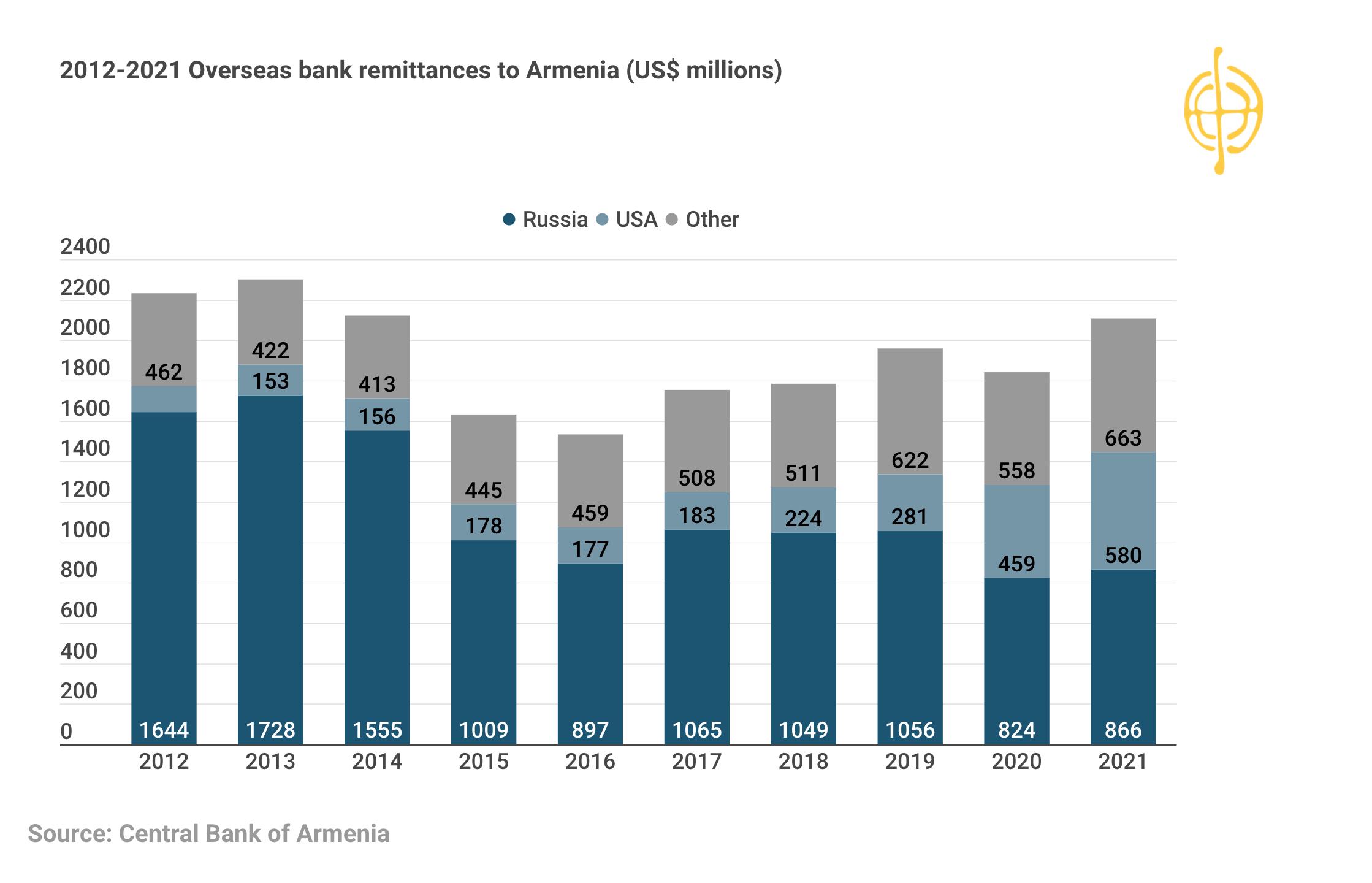
Remittances to Armenia: Ruble Tumbles, Dollar Rises
Russia remains the main source of remittances to Armenia even though its share has decreased significantly over the past ten years. The recent sharp decline of the Russian ruble due to western imposed financial sanctions will naturally impact families in Armenia who rely on this source of income.
The ruble has rapidly depreciated against the Armenia dram since the start of the Russian-Ukrainian war last week. Prior to Russia’s invasion of Ukraine, one ruble fetched around seven drams.
Today, it’s around 4.5 drams. Furthermore, as confidence in the ruble falls, Russian citizens have been quick to exchange rubles for something else, especially US dollars. Thus, the supply of rubles in the foreign exchange market has increased and the price has fallen. The price of the dollar has risen.
Bank remittances to Armenia from Russia dropped sharply in 2015 following European Union and U.S imposed sanctions on Russia for violating Ukraine’s territorial integrity and supporting pro-Russian separatists in eastern Ukraine. In addition, world oil prices fell that year, and Russia, being a major oil exporter, suffered significantly.
This, and the weakening of the ruble, impacted the incomes of Armenians working in Russia and the money they sent home. In the following years, remittances sent from Russia to Armenia did not reach the level registered before 2015 (see chart). Moreover, they decreased in 2020, when people couldn’t leave Armenia to work in Russia due to the coronavirus epidemic and closed borders.
The Central Bank of Armenia (CBA) says the increase of remittances from the U.S. is due to the coronavirus stimulus payments the U.S. government provided businesses and people. Armenians, the bank says, sent the extra money to family and friends in Armenia. The CBA also believes the impact of the current situation on Armenias overall domestic demand isn’t very great.
Historically, the Armenian economy has faced such shocks several times. Unlike in the past, the Armenian economy is now much less dependent on remittances, and Russias share of those remittances is much smaller. We think that a certain reduction in remittances will have a negative impact on the domestic demand of Armenia, but we assess that impact as not very great," the CBA said in a statement.
As noted, the dollar is rising vis-a vis the Armenian dram, which doesn’t benefit importers in Armenia. They must exchange their drams for dollars to import in that currency. As a result, they suffer significantly. The same applies to Armenian citizens with dollar loans, etc. Armenian citizens receiving dollar remittances from the U.S. are benefiting from a rising dollar.
 Videos
Videos Photos
Photos






Write a comment